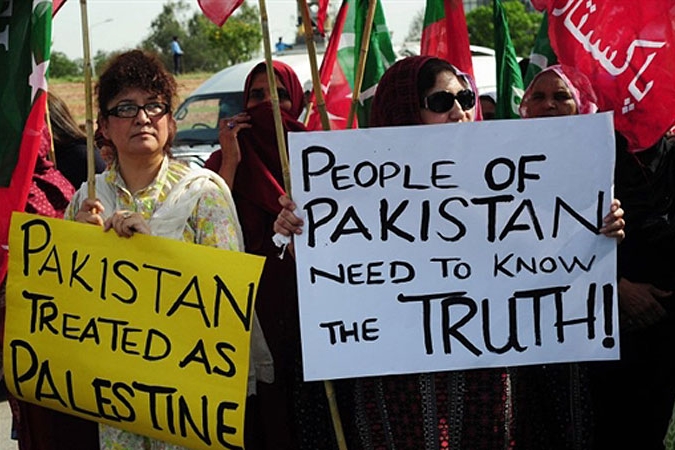 |
It was a telling statement. On Wednesday, the US defence secretary Robert M Gates said there was no evidence that anyone In Pakistan's senior leadership knew that Osama bin Laden was hiding in the garrison city of Abbottabad.
He quickly followed it up, however, with his own theory: "Somebody did know".
That is now the question that is doing the rounds - from Washington to Islamabad via almost every foreign office in the world. In Pakistan, senior military commanders are said to be embarrassed by the whole situation. Speaking on deep background, one army official said simply that the Pakistani military leadership was in crisis mode.
That theory was seemingly confirmed by the chairman of the joint chiefs of staff Admiral Mike Mullen who on Wednesday said the Pakistani army was in soul-searching mode.
In a very tense closed-door special joint sitting of Pakistan's parliament on Friday, the head of Pakistan's intelligence service Lt General Ahmed Shuja Pasha was grilled by a wide spectrum of the country’s lawmakers.
Various leaks from that session described it as being tense. Pakistan's top spy was in turn shocked at the allegations levelled at his agency, even at one point offering to tender his resignation. Quite simply, from some who attended that meeting, it was clear that Pasha didn't know Osama bin Laden was in Abbottabad.
Repeated calls to Pakistani government officials have also yielded no results. Two weeks on and no one in Pakistani authority is willing to speak on the record.
If we take the US defence secretary's words at face value and cross reference that with the research I and others have done it seems plausible that Pakistani senior figures did not know.
But, clearly, someone did.
The theories abound. Of the current crop, the one gaining most traction is "rogue elements" or former officers of Pakistan's intelligence services helped bin Laden hide.
This theory suggests that relations built during the Soviet occupation of Afghanistan between Pakistan and Osama bin Laden have meant that he has had some help in evading capture.
On the surface it sounds reasonable. The ISI is very disciplined organisation and even former members, one assumes, are closely monitored.
The other strong version is that Osama bin Laden used the 2005 earthquake to leave Pakistan's tribal areas. With the mass exodus of people he could have easily evaded being detected. Then using his own connections he could have rented the house in Abbottabad through proxies, moving and sitting put.
Those are the theories that make the most sense given what we know right now. But as more information becomes available the theories may well change.
Here's the rub though. The defence secretary's words will not be enough to heal the deeply fractured relationship between the US and Pakistan. Not only has it been embarrassed at the brazenness of the US raid inside its own land but it has suffered at the hands of many who claim that Pakistan was sheltering the al-Qaeda leader.
Another point, a double game by the US. That Pakistan knew a high-value target was hiding in Abbottabad, tipped off the US authorities, but did not know it was bin Laden. They [Pakistan] were even more shocked when the US president took sole credit for the raid and the intelligence leading up to it.
Those rifts will be hard to heal. Perhaps the US and Pakistan need a frank discussion on who controls what, and who protects whom. In the murky world of espionage and power though that's unlikely.
Original URL